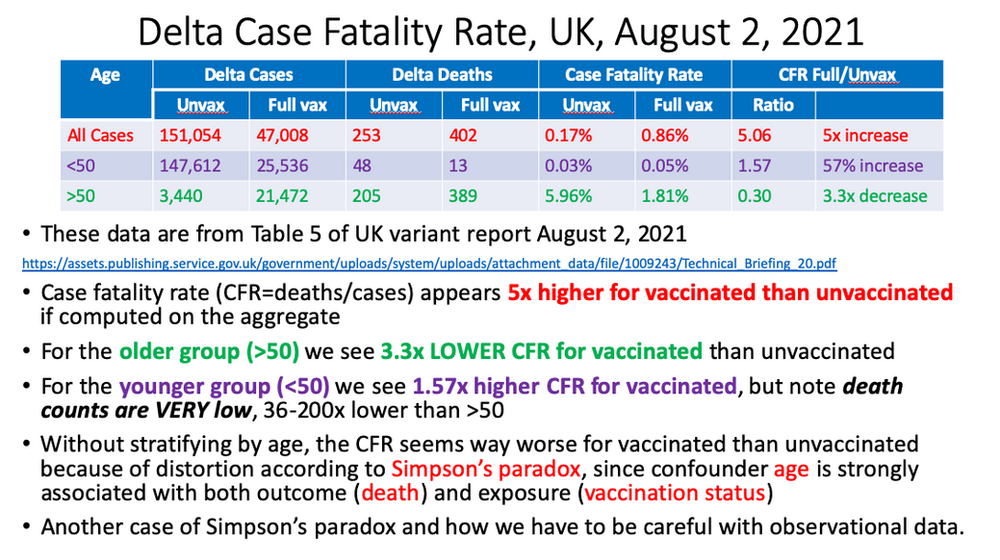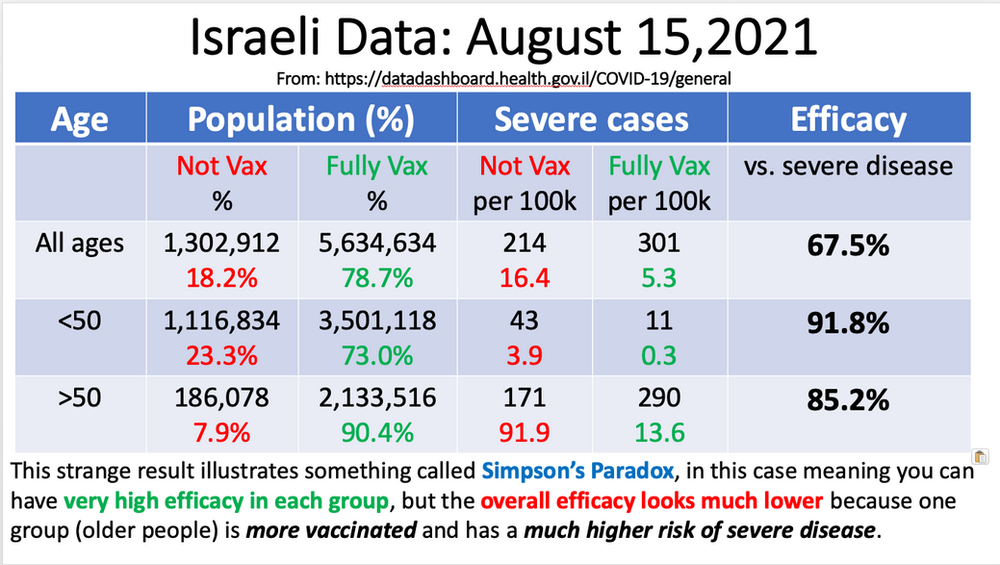The one you linked in post 807. It says
"These findings do not undermine the short-term public health utility of booster vaccination."
Which contradicts the data in your graph.
Um, no it doesn't, and you have not posted the context of what was actually stated about short-term public health utility. Here's what the study actually says (emphasis added).
These findings, however, do not undermine the utility of booster vaccination, at least in the short-term. Compromised protection was observed after booster effectiveness waned, as follow-up commenced >4 months after the booster, at a time when booster effectiveness is expected to be marginal.13,27 There is no question that the booster dose reduced infection incidence right after its administration, based on evidence from this same population.7,12,13 Nonetheless, findings indicate that short-term effects of boosters may differ from their long-term effects.
...
These findings do not undermine the utility of booster vaccination in the short-term, but may point to potentially significant public health complexities requiring fine-tuning of booster vaccination to those who can best benefit from it, such as those most clinically vulnerable to severe COVID-19.
That is precisely what the chart in the study shows.
What good is a booster that is effective at preventing infection (approximately 30% effective, according to the data in this study) for only 4 months if at the end of that time you become
more susceptible to infection? This study is saying that there could be "significant public health complexities" if we don't adjust booster policies to only administer them to people who will actually benefit from them. As I've said all along, the US public health policy of VACCINE GOOD! MORE BETTER! is remarkably foolish, and this study is essentially saying the same thing. Yes, vaccines
can be beneficial when they are targeted to the people who need them most, but they could also be harmful if are continually re-dosing people who are at minimal risk.
As does their conclusion
"Primary-series vaccination followed by a primary omicron infection was associated with enhanced immune protection against omicron reinfection compared to primary omicron infection with no prior vaccination."
As I would hope you know, primary-series vaccination is not the same thing as a booster dose. You're comparing apples to oranges. The problem is in repeated dosing, as the chart in the study shows. The more doses you take, the more susceptible to infection you become as time passes and your booster's protection wanes. That's why I said in one of my earlier posts, "All data currently points to the initial 2-dose regimen of the mRNA vaccines being mostly beneficial, particularly in adults who were not already infected. It's only after repeated dosing that we begin to see something odd happening in the immune system."



